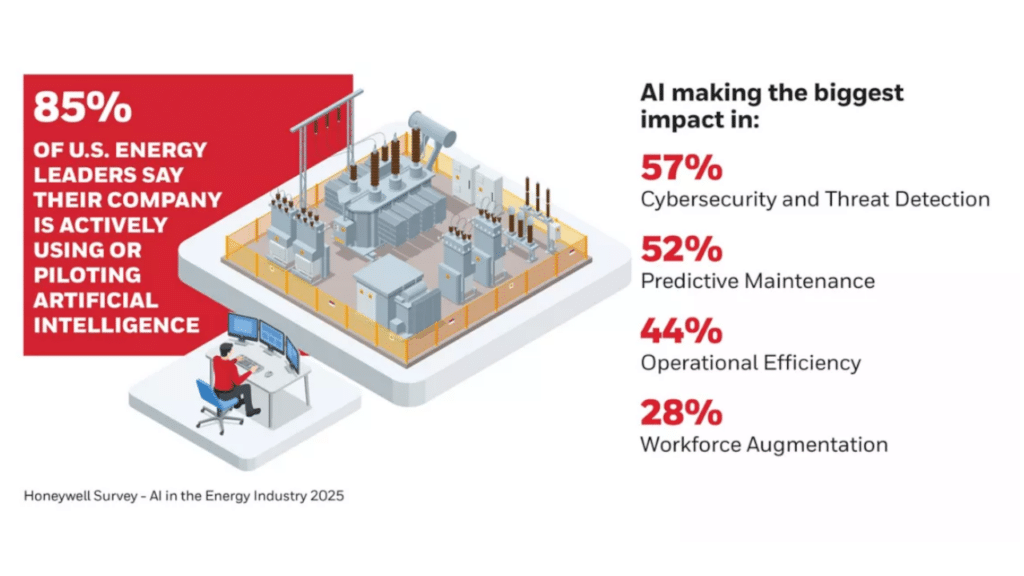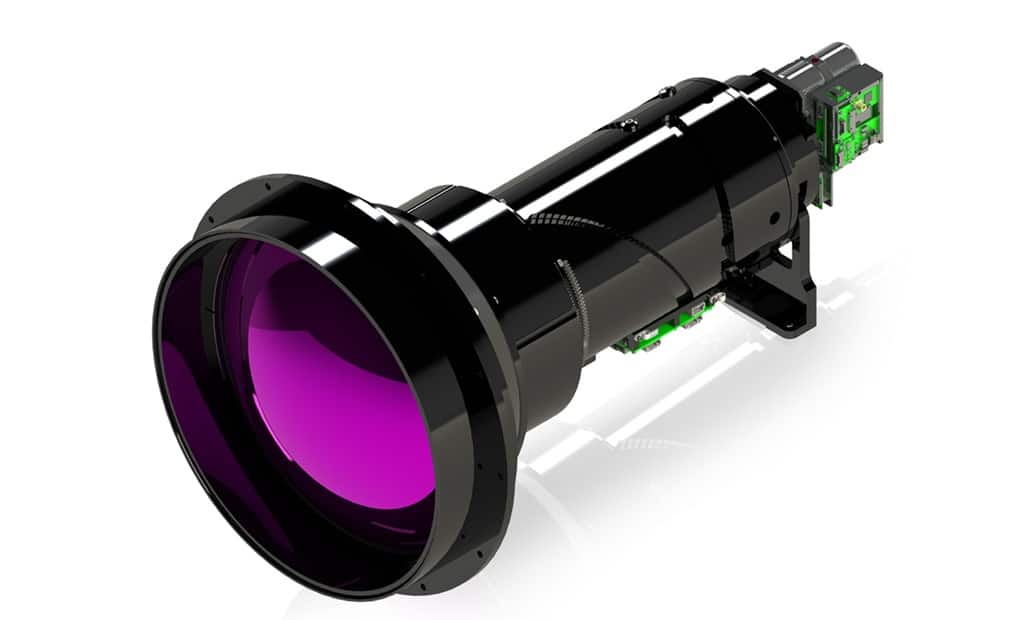Honeywell has released its AI in the Energy Industry pulse survey, which reveals the majority of participating U.S. energy executives believe artificial intelligence (AI) has the near-term potential to improve and enhance energy security.
According to the April 2025 BloombergNEF New Energy Outlook report, overall global energy demand is expected to increase 32% by 2050, with demand for electricity alone expected to increase 75%.
To meet this growing demand, energy leaders will need to harness new sources of energy and optimise their current operations using AI and digital technologies.
Honeywell’s survey of 300 U.S. decision-makers and influencers in energy and energy-adjacent industries found 91% believe AI has near-term potential to enhance energy security and 85% are already either actively using or piloting AI in their companies today.
While only 12% of respondents said AI is currently a critical part of their energy operations, 81% said it will become critical over the course of the next five years – demonstrating the importance of energy security and massive anticipated uptick in adoption expected in the short term.
When looking across use cases, 94% are also either already engaged with an AI solutions provider or considering doing so as momentum behind the technology continues to grow.
“To meet the growing energy demands, industry leaders are leveraging new technology solutions to help address some of the most pressing challenges — enhancing energy security, optimising current infrastructure, harnessing new sources of energy and augmenting the workforce,” said Ken West, President and CEO of Honeywell Energy and Sustainability Solutions. “Looking ahead, new technologies like AI and automation can further optimise existing energy systems and integrate new energy sources more swiftly and efficiently.”
When asked the most valuable aspects of AI, energy decision-makers surveyed identified several key areas of operations, such as cybersecurity and threat detection (57%), predictive maintenance (52%), and operational efficiency (44%).
The survey also found that more than half of respondents (53%) are using AI to address labor shortages and workforce upskilling through virtual assistants, 53% are using to enhance workplace safety and security through monitoring and threat detection and only one-third (36%) are using AI to automate routine tasks.
To learn more about the survey results and how Honeywell’s AI solutions are helping to shape the energy sector, please visit https://ess.honeywell.com/us/en/home.
Methodology
Honeywell commissioned research firm Hudson Pacific to conduct the Honeywell AI in Energy Industry Survey from March 24, 2025 through April 1, 2025.
This opinion research is based on responses from 300 U.S. decision-makers and influencers in energy and energy-adjacent industries on their use of artificial intelligence.
Respondents included those in oil and gas, electricity generation and distribution, utility construction, solar field development, wind turbine transportation or construction, natural gas distribution, mining, carbon management, chemical manufacturing and more. Leaders taking the survey had input into their company’s use of AI in its operations.
To read more Honeywell news, click here.




